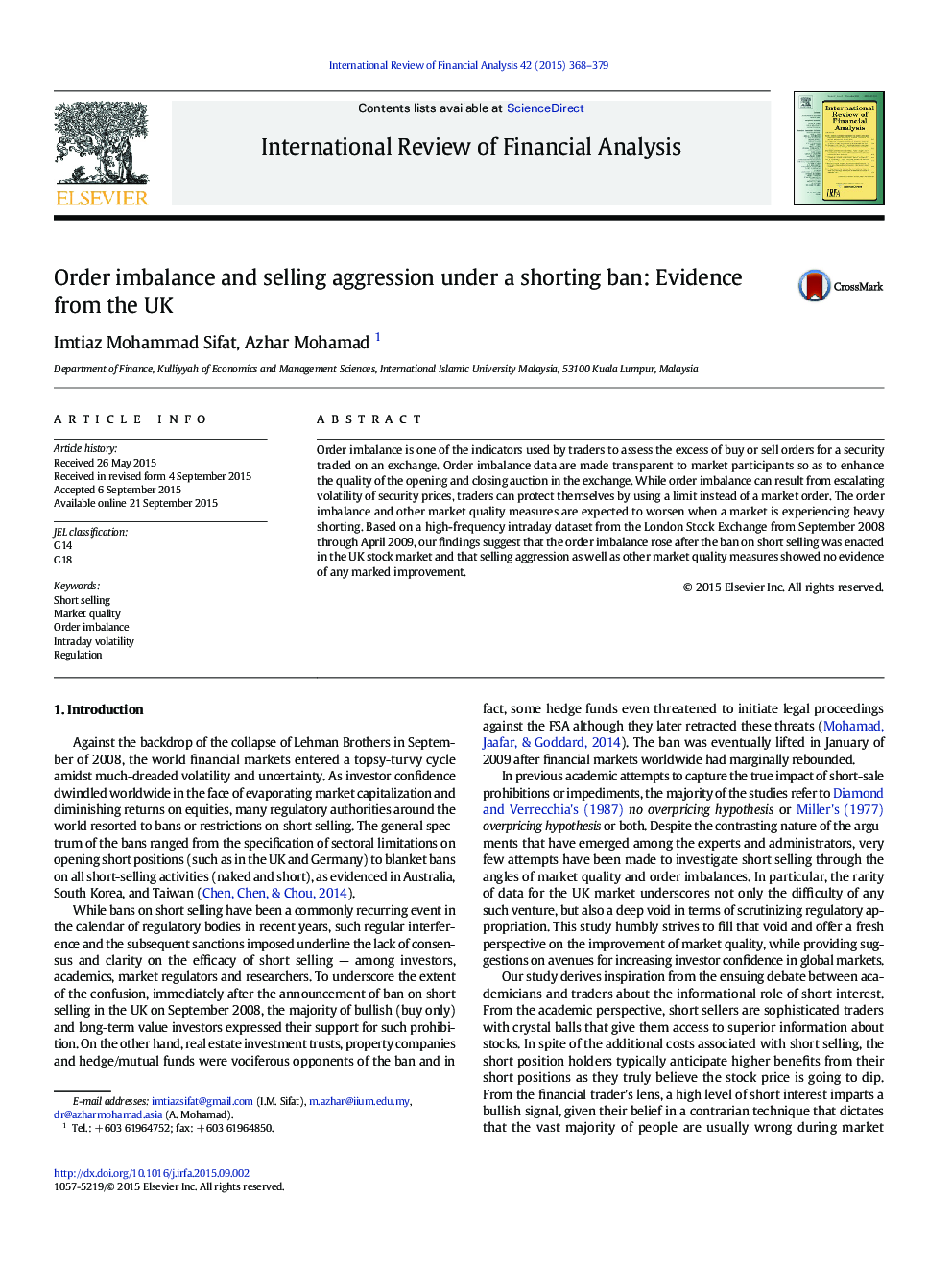| Article ID | Journal | Published Year | Pages | File Type |
|---|---|---|---|---|
| 5084724 | International Review of Financial Analysis | 2015 | 12 Pages |
â¢We employ high frequency data from the London Stock Exchange during shorting ban in 2008.â¢We find that order imbalance rises after the FSA's ban.â¢Market quality deteriorates following the ban on naked short selling.â¢Selling aggression and market quality markers fail to improve after the FSA's ban.
Order imbalance is one of the indicators used by traders to assess the excess of buy or sell orders for a security traded on an exchange. Order imbalance data are made transparent to market participants so as to enhance the quality of the opening and closing auction in the exchange. While order imbalance can result from escalating volatility of security prices, traders can protect themselves by using a limit instead of a market order. The order imbalance and other market quality measures are expected to worsen when a market is experiencing heavy shorting. Based on a high-frequency intraday dataset from the London Stock Exchange from September 2008 through April 2009, our findings suggest that the order imbalance rose after the ban on short selling was enacted in the UK stock market and that selling aggression as well as other market quality measures showed no evidence of any marked improvement.
